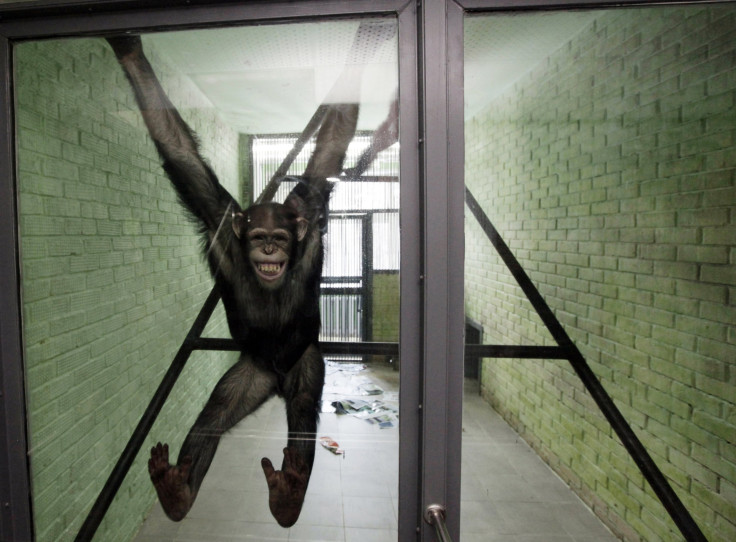Do Chimpanzees Have The Same Rights As Humans? US Court Denies ‘Legal Personhood’ To Caged Chimp

A New York court ruled Thursday that a chimpanzee did not have the same legal protections as a human and therefore did not have to be freed from captivity, according to the BBC. The decision came after an animal rights group sued last year to have a former entertainment chimp named Tommy, who was living in a cage at a trailer dealer in upstate Fulton County, New York, transferred to a chimp sanctuary.
"So far as legal theory is concerned, a person is any being whom the law regards as capable of rights and duties,” Judge Karen Peters ruled. "Needless to say, unlike human beings, chimpanzees cannot bear any legal duties, submit to societal responsibilities or be held legally accountable for their actions.'' The judge added that it would be “inappropriate” to afford chimpanzees the same legal rights as humans.
The group that filed the December 2013 lawsuit, the Florida-based Nonhuman Rights Project, sought to establish “legal personhood” for Tommy. It argued that chimps like Tommy who exhibit human-like cognition deserve basic liberties, including freedom from detainment. The lawsuit was the first time a request writ of habeas corpus -- a court order that compels someone holding a person in custody to produce the detained individual -- had been filed on behalf of an animal. Chimps "possess complex cognitive abilities that are so strictly protected when they're found in human beings," Nonhuman Rights Project president Steven Wise told Reuters last year. "There's no reason why they should not be protected when they're found in chimpanzees.”
Tommy’s owner, Patrick Lavery, said that the court’s ruling did not come as a shock. "I just couldn't picture any court granting habeas corpus for an animal," Lavery told the Associated Press. "If it works for one animal, it works for all animals. It would open a can of worms."
The animal rights group immediately said on Twitter it would file for an appeal. “All are wrong and will be the subject of our appeal to New York’s highest court, the Court of Appeals,” the group tweeted Thursday.
The only federal protection for animals in the U.S. is the 1966 Animal Welfare Act, which established guidelines for the treatment of animals in research, exhibition, transport and sale.
© Copyright IBTimes 2025. All rights reserved.






















